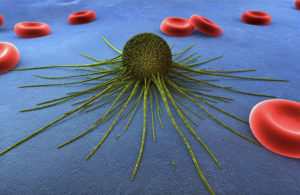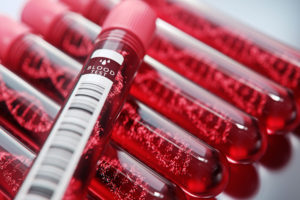Tumor Overview
A tumor is an abnormal growth of body tissue. Tumors can be cancerous (malignant) or noncancerous (benign).

Causes of Tumor
In general, tumors occur when cells divide and grow excessively in the body. Normally, the body controls cell growth and division. New cells are created to replace older ones or to perform new functions. Cells that are damaged or no longer needed die to make room for healthy replacements.
If the balance of cell growth and death is disturbed, a tumor may form.
Problems with the body’s immune system can lead to tumors. Tobacco causes more deaths from cancer than any other environmental substance. Other risk factors for cancer include:
- Smoking
- Drinking too much alcohol
- Obesity
- Viruses
- Genetic mutations
- Environmental toxins
- Benzene and other chemicals and toxins
- Excessive sunlight exposure
- Radiation exposure
Types of tumors known to be caused by or linked with viruses are:
- Cervical cancer (human papillomavirus)
- Most anal cancers (human papillomavirus)
- Some throat cancers, including soft palate, base of tongue and tonsils (human papillomavirus)
- Some vaginal, vulvar, and penile cancers (human papillomavirus)
- Some liver cancers (hepatitis B and hepatitis C viruses)
- Kaposi sarcoma (human herpesvirus 8)
- Adult T-cell leukemia/lymphoma (human T-lymphotropic virus-1)
- Merkel cell carcinoma (Merkel cell polyomavirus)
Some tumors are more common in one sex than the other. Some are more common among children or older adults. Others are related to diet, environment, and family history.
Signs and Symptoms of Tumor
Symptoms depend on the type and location of the tumor. For example, lung tumors may cause coughing, shortness of breath, or chest pain. Tumors of the colon can cause weight loss, diarrhea, constipation, iron deficiency anemia, and blood in the stool.
Some tumors may not cause any symptoms. Others, such as pancreatic cancer, do not usually cause symptoms until the disease has reached an advanced stage.
The following symptoms may occur with tumors:
- Anemia
- Fever or chills
- Fatigue
- Headaches
- Loss of appetite
- Night sweats
- Dizziness
- Nausea
- Vomiting
- Weight loss
- Pain
- Coughing
- Constipation
- Diarrhea
Diagnosis of Tumor
Most of the tumors can’t be seen during a physical exam because they are deep inside the body. Diagnostic and lab tests need to be performed to find the exact location and type of tumor in the body.
When a tumor is found, a piece of the tissue is removed and examined under a microscope. This is called a biopsy. It is done to determine if the tumor is noncancerous (benign) or cancerous (malignant). Depending on the location of the tumor, the biopsy may be a simple procedure or may need surgery.
A CT or MRI scan can help determine the exact location of the tumor and how far it has spread inside the tissue or other organs of the body. Another imaging test called positron emission tomography (PET) is used to find certain types of tumors.
Other tests that may be done include:
- Blood tests
- Bone marrow biopsy (most often for lymphoma or leukemia)
- Chest X-Ray
- Complete blood count (CBC)
- Molecular (genetic) tests
- Liver function test
Treatment of Tumors
Treatment varies based on the following factors:
- Type of tumor
- Whether it is cancer
- Location of the tumor
You may not need treatment if the tumor is:
- Noncancerous (benign)
- In a “safe” area where it will not cause symptoms or problems with the way an organ works
Sometimes benign tumors may be removed for cosmetic reasons or to improve symptoms. Benign tumors of the brain may be removed because of their location or harmful effect on the surrounding normal brain tissue.
If a tumor is cancerous, possible treatments may include:
- Chemotherapy
- Radiation
- Surgery
- Targeted cancer therapy
- Immunotherapy
- Other treatment options
Cancer
The word cancer is derived from the Latin word for crab because cancers are often very irregularly shaped, and because, like a crab, they “grab on and don’t let go.” The term cancer specifically refers to a new growth which has the ability to invade surrounding tissues, metastasize (spread to other organs) and which may eventually lead to the patient’s death if untreated.
The terms tumor and cancer are sometimes used interchangeably which can be misleading. A tumor is not necessarily a cancer. The word tumor simply refers to a mass. For example, a collection of fluid would meet the definition of a tumor. A cancer is a particularly threatening type of tumor. It is helpful to keep these distinctions clear when discussing a possible cancer diagnosis.
Neoplasm
A neoplasm is an abnormal new growth of cells. The cells in a neoplasm usually grow more rapidly than normal cells and will continue to grow if not treated. As they grow, neoplasms can impinge upon and damage adjacent structures. The term neoplasm can refer to benign (usually curable) or malignant (cancerous) growths.
Tumor
A tumor is a commonly used, but non-specific, term for a neoplasm. The word tumor simply refers to a mass. This is a general term that can refer to benign (generally harmless) or malignant (cancerous) growths.
Benign Tumor
Benign tumors are non-malignant/non-cancerous tumor. A benign tumor is usually localized, and does not spread to other parts of the body. Most benign tumors respond well to treatment. However, if left untreated, some benign tumors can grow large and lead to serious disease because of their size. Benign tumors can also mimic malignant tumors, and so for this reason are sometimes treated.
Malignant Tumor
Malignant tumors are cancerous growths. They are often resistant to treatment, may spread to other parts of the body and they sometimes recur after they were removed. A cancer is another word for a malignant tumor (a malignant neoplasm).

Bay Biosciences is a global leader in providing researchers with high quality, clinical grade, fully characterized human tissue samples, bio-specimens and human bio-fluid collections from cancer (tumor) tissue, cancer serum, cancer plasma cancer PBMC and human tissue samples from most other therapeutic areas and diseases.
Bay Biosciences maintains and manages it’s own bio-repository, human tissue bank (biobank) consisting of thousands of diseased samples (specimens) and from normal healthy donors available in all formats and types. Our biobank procures and stores fully consented, deidentified and institutional review boards (IRB) approved human tissue samples and matched controls.
All our human human tissue collections, human specimens and human bio-fluids are provided with detailed samples associated patient’s clinical data. This critical patient’s clinical data includes information relating to their past and current disease, treatment history, lifestyle choices, biomarkers and genetic information. Patient’s data is extremely valuable for researchers and is used to help identify new effective treatments (drug discovery & development) in oncology, other therapeutic areas and diseases. This clinical information is critical to demonstrate their impact, monitor the safety of medicines, testing & diagnostics, and generate new knowledge about the causes of disease and illness.
Bay Biosciences banks wide variety of human tissue samples and biological samples including cryogenically preserved -80°C, fresh, fresh frozen tissue samples, tumor tissue samples, FFPE’s, tissue slides, with matching human bio-fluids, whole blood and blood derived products such as serum, plasma and PBMC’s.
Bay Biosciences is a global leader in collecting and providing human tissue samples according to the researchers specified requirements and customized, tailor made collection protocols. Please contact us anytime to discuss your special research projects and customized human tissue sample requirements.
Bay Biosciences provides human tissue samples (human specimens) from diseased and normal healthy donors; including peripheral whole-blood, amniotic fluid, bronchoalveolar lavage fluid (BAL), sputum, pleural effusion, cerebrospinal fluid (CSF), serum (sera), plasma, peripheral blood mononuclear cells (PBMC’s), saliva, Buffy coat, urine, stool samples, aqueous humor, vitreous humor, kidney stones, renal calculi, nephrolithiasis, urolithiasis and other bodily fluids from most diseases including cancer. We can also procure most human bio-specimens and can do special collections and requests of human samples that are difficult to find. All our human tissue samples are procured through IRB approved clinical protocols and procedures.
In addition to the standard processing protocols Bay Biosciences can also provide human plasma, serum, PBMC bio-fluid samples using custom processing protocols, you can buy donor specific sample collections in higher volumes and specified sample aliquoting from us. Bay Biosciences also provides human samples from normal healthy donors, volunteers, for controls and clinical research, contact us Now.
日本のお客様は、ベイバイオサイエンスジャパンBay Biosciences Japanまたはhttp://baybiosciences-jp.com/contact/までご連絡ください。
